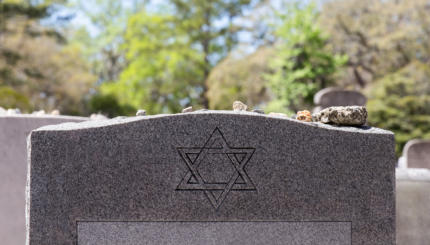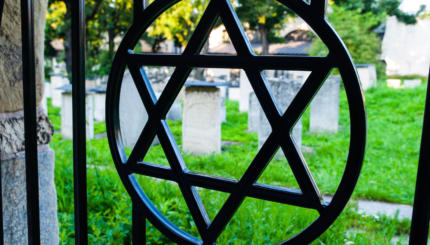Question: A dear friend lost his beloved teacher to cancer. As far as he can tell, the teacher had no immediate relatives. My friend is bereft and would like to sit shiva for his teacher. I thought this was not permitted. Can you provide some clarification on this issue?
— Larry
Answer: In traditional Jewish law, a person is obligated to mourn for their parents, siblings and spouse (Shulchan Aruch, Yoreh De’ah 374). But what about the wide range of people whom we love and are close to who are not our immediate relatives? Your question gets at the complexity and depth of our relationships and the need to mark grief with the powerful rituals Jewish tradition offers us.
The short answer is yes, you can sit shiva for a person you are not obligated to mourn for. The Talmud, in Berakhot 16b, records the story of the sage Rabban Gamliel receiving formal condolence visits — essentially, shiva calls — following the death of Tavi, who was not a blood relative and spent his life enslaved to Rabban Gamliel. Tavi and Rabban Gamliel had a close relationship but were not formally family, yet Rabban Gamliel treated his grief at Tavi’s death as ritually significant.
Modern Jewish legal authorities also support taking on mourning observances for people we are not formally obligated to mourn. Rabbi Moshe Feinstein, an 20th-century American Ashkenazi Orthodox authority, permits and even encourages relatives of those in mourning (people who are called “secondary mourners” in rabbinic literature, i.e. the spouse of someone who has lost a parent) to take on mourning practices like refraining from wearing fresh clean clothes or bathing (Darchei Moshe, Yoreh Deah 374:5). Rabbi Ovadiah Yosef, a 20th-century Israeli Sefardi authority, permits the recitation of Kaddish even for people who are not Jewish (Shu”t Yechaveh Daat, 6:60).

Help us keep Jewish knowledge accessible to millions of people around the world.
Your donation to My Jewish Learning fuels endless journeys of Jewish discovery. With your help, My Jewish Learning can continue to provide nonstop opportunities for learning, connection and growth.
The one exception is kriah, the ritual tearing of clothes. This is observed today in some Jewish communities by wearing a torn ribbon pinned to one’s clothes. Halakhically speaking, this is a distinct mitzvah from the other practices of mourning, and because kriah causes destruction, there is more caution around doing it for non-obligatory mourning (Rema Yoreh Deah 340:6), though there are many opinions that allow for and encourage “tearing kriah” upon hearing of the death of a renowned scholar or close personal teacher.
In my own experiences of losing loved ones, I have returned again and again to an article I was assigned to read in rabbinical school, a personal essay entitled “Let’s Bring Back Mourning Clothes.” The author describes a deep need for her grief to be legible without much explanation, writing that “I don’t want my grief to be private and unobtrusive; I want my grief to be understood without my having to constantly explain it. Everything now feels too loud and too bright.” Jewish mourning practices offer us a way to make our grief understood, and they are not restricted to the realm of obligatory mourning.

Rabbi Avigayil Halpern (she/her) is a writer and educator whose work focuses on feminist and queer Torah.



